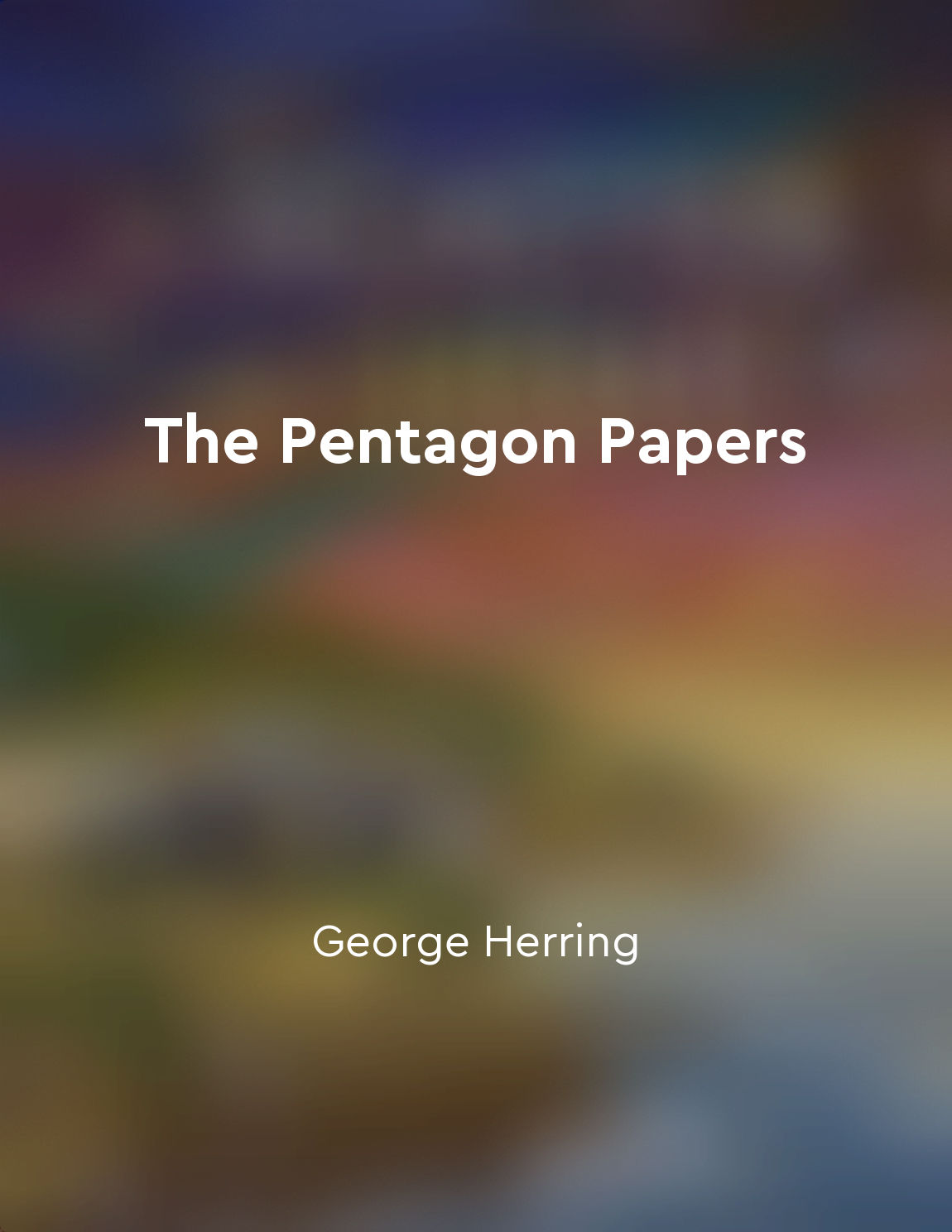Disclosures raised ethical concerns from "summary" of The Pentagon Papers by George Herring
The revelations contained in the Pentagon Papers brought to light a multitude of ethical dilemmas that could not be ignored. The decision to disclose classified information of such magnitude raised questions about the boundaries of government transparency and the responsibilities of those in possession of sensitive information. The disclosure of the Pentagon Papers forced the American public to confront the ethical implications of hiding the truth behind a veil of secrecy. It called into question the government's right to withhold information from its citizens, especially when that information could have significant implications for national policy and public opinion. Furthermore, the ethical concerns raised by the Pentagon Papers extended beyond the realm of government transparency to the issue of individual integrity. Those who leaked the documents were faced with a moral dilemma: should they prioritize their loyalty to the government or their duty to the American people? The decision to disclose classified information was not taken lightly, and those involved grappled with the ethical implications of their actions. The Pentagon Papers also shed light on the ethical responsibilities of journalists and publishers. The decision to publish classified information required a careful consideration of the potential consequences and a commitment to upholding the principles of a free press. The ethical implications of publishing the Pentagon Papers were clear: to inform the public of the truth, no matter the cost. In the end, the disclosures contained in the Pentagon Papers raised ethical concerns that could not be easily dismissed. They forced a reckoning with the boundaries of government transparency, individual integrity, and journalistic responsibility. The implications of these revelations would continue to be felt long after the dust had settled, leaving a lasting impact on American society and its understanding of ethics in the public sphere.Similar Posts
Journalistic integrity upheld
The concept of journalistic integrity upheld is evident throughout the book as Bernstein and Woodward tirelessly work to uncove...
The potential for accidental nuclear war was high
The possibility of an unintentional nuclear conflict was not a distant or improbable scenario; it was a very real and present d...
Ellsberg tried to warn officials about the dangers
Daniel Ellsberg made repeated attempts to alert government officials to the extreme dangers posed by the U.
S. nuclear war pla...

The Pentagon Papers altered perceptions
The Pentagon Papers, a top-secret study of U.
S. decision-making in Vietnam, had a profound impact on the American public when...

Public accountability was questioned
The Pentagon Papers shed light on the lack of public accountability within the U.
S. government during the Vietnam War. The do...
Uncovering the truth as a moral imperative
The pursuit of truth is not just a professional obligation for journalists; it is a moral imperative that cuts to the core of o...
